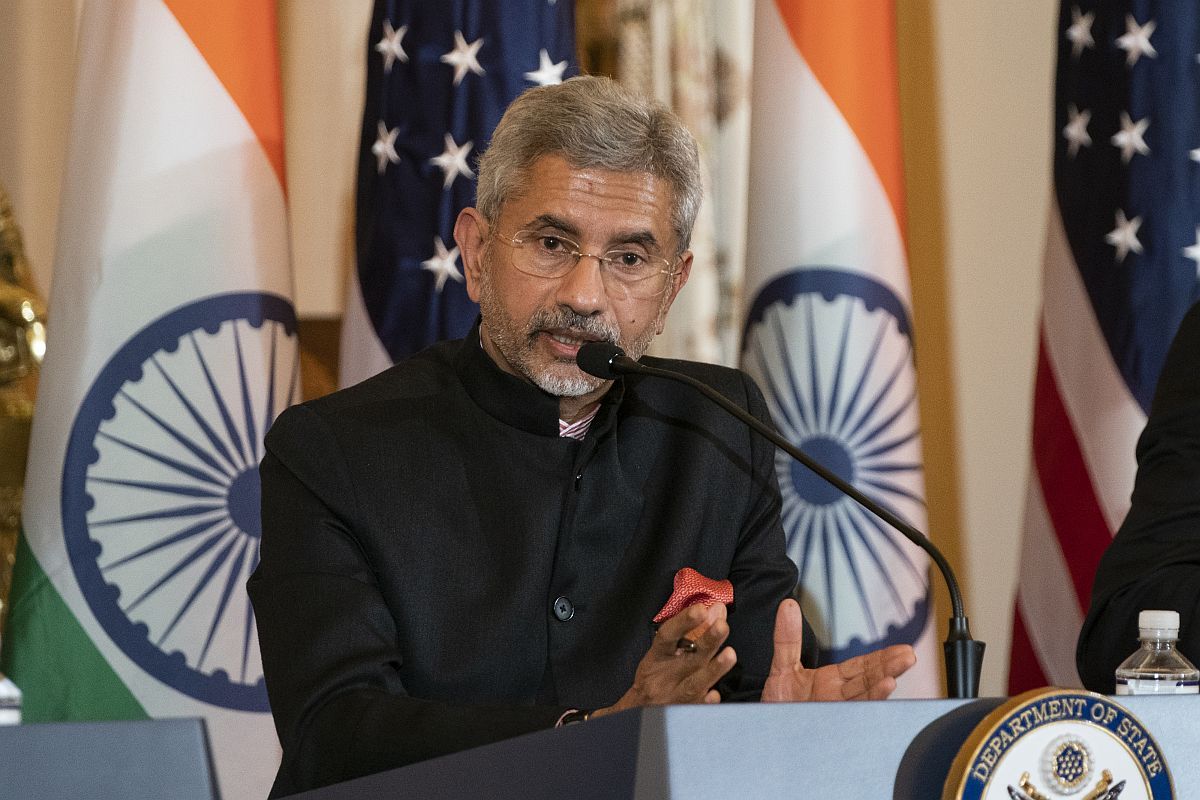LG calls effective for steps to wipe out terrorism from Jammu
Lt. Governor Manoj Sinha, on Thursday, stressed strengthening border security against asymmetric threats due to the porous border with riverine and difficult mountain ranges.
“It (terrorism) is a crime against humanity and violates the most fundamental human right-namely ‘the Right to Life’, he said in a virtual address.

Foreign Affairs Minister S Jaishankar. (Photo: AFP)
External affairs minister S Jaishankar today identified terrorism as one of the gravest threats facing the humankind and called for reforming multilateral institutions and mechanisms so that they could effectively deal with the menace.
“It (terrorism) is a crime against humanity and violates the most fundamental human right-namely ‘the Right to Life’, he said in a virtual address.
Advertisement
As a long-standing victim, India has been in the forefront of the global action against terrorism. This is possible only when there is a clear realisation, including in bodies dealing with human rights, that terrorism can never be justified nor its perpetrators ever equated with its victims,” he said addressing the high-level segment of the 46th session of the United Nations Human Rights Council (UNHRC).
Advertisement
India, he said, had last month presented at the UN Security Council an 8-point action plan to deal with the scourge of terrorism.
New Delhi would continue to work together with members of the UNSC and other countries to ensure implementation of the action plan.
Jaisahankar said the human rights agenda continued to face severe challenges, most of all from terrorism.
The perennial concerns remain equally strong, be it global inequities or armed conflicts.
“The ongoing pandemic has complicated the situation in many geographies. There is a need for us to come together to overcome these challenges,” he added.
India, the minister said, has always played an active role in global promotion and protection of human rights.
“Our strong commitment to the welfare of entire humanity, inspired by our civilisational ethos of ‘Vasudhaiva Kutumbkam’ or “the World is one family” has provided the very foundation on which our constitutional and legal framework of human rights has been built.”
He said India believed that the violation of and gaps in implementation of human rights should be addressed in a fair and just manner, with objectivity, non-selectivity, transparency and with due respect to the principles of non-interference in internal affairs and national sovereignty.
Jaishankar said India’s abiding commitment to promotion and protection of basic human rights has been manifest in its strategy to deal with Covid 19 pandemic.
By giving direct food support to 800 million Indians and financial support to 400 million, many of them women, India ensured that basic needs were very effectively addressed even during the lockdown.
“And as we addressed the health front at home, we responded to the world in equal measure. We provided essential medicines and equipment to more than 150 countries to assist them in this fight. In the same spirit, India has pledged to use its vaccine manufacturing capacity to make vaccines accessible and affordable to all. From Bangladesh to Brazil and from Morocco to Fiji, the pharmacy of the world is today supplying millions of vaccine doses to more than 70 countries,” he added.
Advertisement